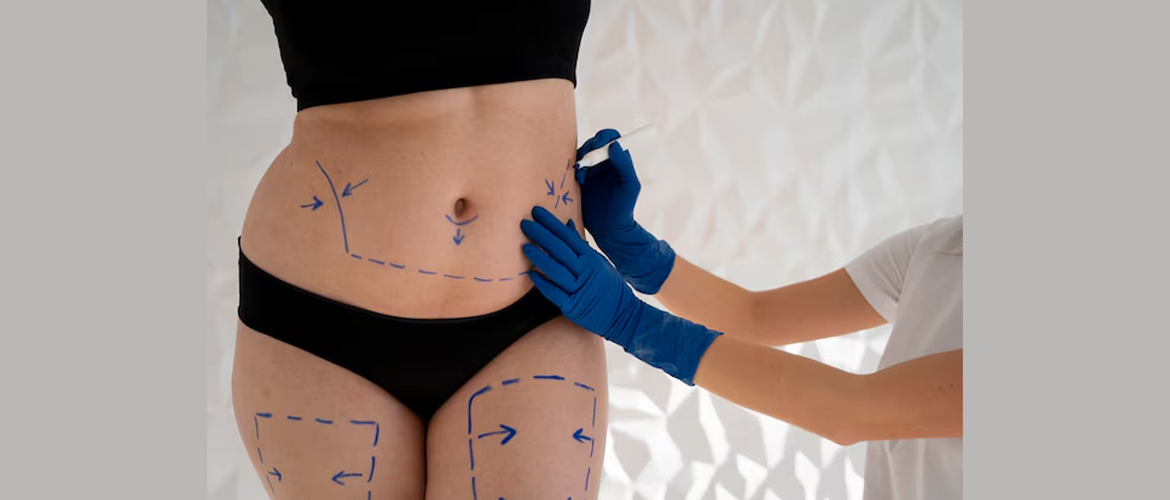No one likes to be obese. But a modern sedentary lifestyle has resulted in many people getting fat. Excessive weight can lead to a range of health issues. The measures people take to get rid of the excess fat can range from going on all kinds of diet fads, going through excessive exercise routines, and even surgical options like the popular liposuction. Liposuction can help people get over the physical and psychological drawbacks of obesity.
What is Liposuction?
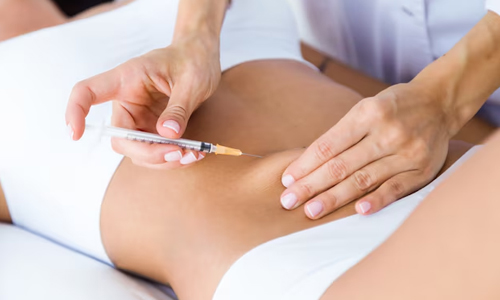
Liposuction is a type of plastic surgery. It uses the suction method to remove fat from specific regions of the body. This method is also called lipo, lipoplasty, or body contouring. It is considered the popular cosmetic surgery option and gives a smoother look and shape. Remember that it is not a weight loss procedure.
Where Do I Get This Surgery?
- Abdomen, stomach, or waist
- Hips or flanks
- Back or chest
- Face, cheeks, chin or neck
- Buttocks
- Inner knee, calves, or ankles
- Thighs
- Upper arms
Who Requires This Surgery?
- Has excess fat in specific areas that don’t respond to diet and exercise
- Is at or close to their ideal weight
- Has firm, elastic skin
- Has good muscle tone
- Should be a non-smoker
- Has good overall health
- Has realistic goals for the procedure
- Doesn’t have a life-threatening illness or medical conditions that can impair healing
Remember that liposuction is an elective and not a substitute process.
Who Might Not Be a Candidate for This Surgery?
You may not be a suitable candidate for liposuction if you:
- Are underweight.
- Have a BMI over 25.
- Have a serious, life-threatening health condition or an illness that may impede healing.
- Have unrealistic expectations for the procedure.
- Have poor skin quality.
It’s important to note that liposuction alone cannot address saggy or loose skin, which is common after significant weight loss. If your goal is to address loose skin, your healthcare provider may recommend a combination of liposuction and excess skin removal.
Benefits of Liposuction
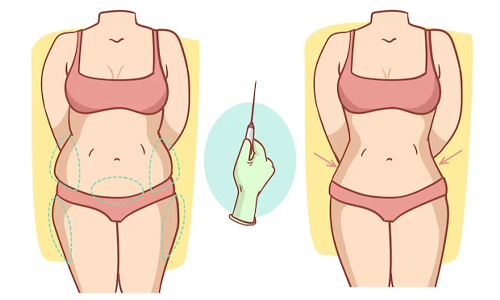
Liposuction can certainly offer a fast, yet temporary effect of making your fat deposits disappear. You look slimmer and feel good about it. You get the benefit of becoming slimmer without having to go through rigorous diets or exercise.
Here are some of the key benefits of liposuction surgery:
1. Improved Body Contour
Liposuction removes the stubborn pockets of fats that are resistant to diet and workout, resulting in more sculpted and enhanced body contour.
2. Increased Confidence
A notable amount of difference will be seen in the confidence level and body positivity after undergoing liposuction.
3. Health Benefits
There are certain health benefits of undergoing liposuction. It helps remove lipomas (benign fatty tumors) from certain areas of the body and also treats specific conditions such as lipodystrophy syndrome.
4. Reduces Health Risks
Liposuction reduces the risks of various health issues like heart disease, and diabetes due to its tendency to lower excess fat cells.
5. Increases Mobility
This surgery also increases mobility, making physical activities more comfortable and enjoyable.
There are also certain conditions in which liposuction can be beneficial, such as benign fatty tumors known as lipomas, a condition called gynecomastia, which is characterized by an abnormally large breast in men, certain metabolic issues related to fat, excessive perspiration in armpits, etc.
Is Liposuction Safe?
Liposuction has a good safety record, but every surgery comes with risks. Choosing a trained, board-certified plastic surgeon limits the risks. The fewest risks are involved in procedures for smaller areas of fat removal, which also have shorter durations.
Side Effects of Liposuction
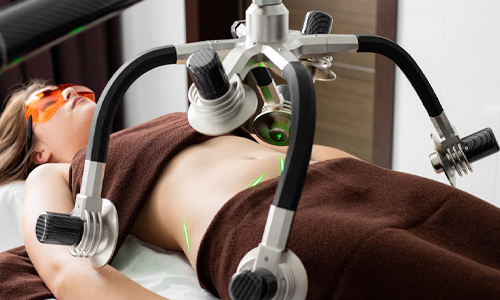
1. Bruising and Swelling
Bruising and swelling are common complications that occur after the surgery. It usually takes 2 to 3 weeks to resolve.
2. Contour Deformities
Uneven fat removal, poor skin elasticity, and scarring can cause your skin to appear bumpy, wavy, and withered.
3. Temporary Numbness
This usually goes away after six weeks, but can sometimes last longer than expected.
4. Infection
It is rare, but if an infection does occur, you may need antibiotics, hospitalization or even surgery.
5. Blood Clots
These can be dangerous if they travel to other parts of the body, like your lungs.
6. Fluid Imbalance
Fat contains a lot of fluid, so your surgeon will inject fluid before the procedure. This can lead to a fluid imbalance that might affect your heart, lungs, or kidneys.
7. Allergies
You may also experience hyperpigmentation from adhesive tape or Reston foam.
Other side effects include:
- Seroma
- Temporary weight gain
- Paresthesias
- Fat embolism
- Pulmonary embolism
- Lidocaine toxicity
- Cannula breakage
- Damages in nerves, blood vessels, muscles, lungs and abdominal organs
- Thermal burn or heat injury
Note: Before undergoing liposuction, you’ll be asked to sign consent forms to ensure you understand the procedure and its risks.
Liposuction Recovery Timeline
| Recovery period | What to expect |
| Week 1 | Monitor pain, swelling, and bruising (requires medication)
Significantly limit your activity |
| Weeks 2-3 | You will start feeling much better
Return to work (depending on your job) |
| Weeks 4-5 | Bruising should vanish
Swelling should start to subside |
| Week 6 and beyond | Continued improvement in swelling; may start to gradually increase activity and do gentle exercise |
How to Prepare for Surgery?
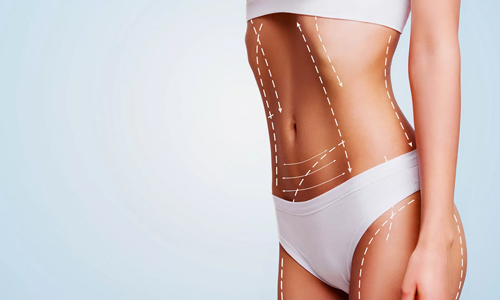
1. Medical History
Some medical conditions may affect your procedure and recovery, so be honest with your consultation, and don’t forget to mention if you have any other health problems.
2. Cut down as Much Weight
Make a note that liposuction isn’t a weight loss procedure. So it is advisable to stay fit and healthy as possible before the surgery. You can be turned away if your BMI is too high as much of the weight could be lost only through diet and exercise.
3. Be Hydrated
You will lose plenty of fluids during the procedure, so it is advisable to keep your body hydrated before and after the surgery. Dehydration can interfere with the healing process of soft tissues and affect the final results.
4. Quit Smoking
Cigarettes and any other types of tobacco also interfere with the healing process, as they have adverse effects on your body.
Read this blog Natural Ways to Quit Smoking to stop smoking naturally.
5. A Balanced Diet
A healthy balanced diet helps prepare your skin for the procedure. Try to include vitamins, lean proteins, and other nutrients as much as possible and avoid alcohol or any other foods or drinks that cause dehydration or inflammation.
6. Get Your Lab Tests Done
Some of the tests are needed to ensure that you are in good health and to check whether you need any additional assistance during the surgery. While learning how to prepare for liposuction, you should get these tests done on time.
7. Ensure Assistance in Recovery
Sufficient rest is needed during the initial few days. This also requires you to get some assistance with activities, such as driving back home, household chores, childcare, and preparing meals. Be sure to keep this in mind before going into the surgery.
Final Note
Although it is a very rare possibility, liposuction can lead to death if a large portion of fat is removed from the body all at once. This risk can increase many times for obese people with some other serious health issues. Make sure you meet with a plastic surgeon and discuss the potential complications and risks before the surgery.
Hayley
Related posts
Women Tips
Privacy Overview
| Cookie | Duration | Description |
|---|---|---|
| cookielawinfo-checkbox-analytics | 11 months | This cookie is set by GDPR Cookie Consent plugin. The cookie is used to store the user consent for the cookies in the category "Analytics". |
| cookielawinfo-checkbox-functional | 11 months | The cookie is set by GDPR cookie consent to record the user consent for the cookies in the category "Functional". |
| cookielawinfo-checkbox-necessary | 11 months | This cookie is set by GDPR Cookie Consent plugin. The cookies is used to store the user consent for the cookies in the category "Necessary". |
| cookielawinfo-checkbox-others | 11 months | This cookie is set by GDPR Cookie Consent plugin. The cookie is used to store the user consent for the cookies in the category "Other. |
| cookielawinfo-checkbox-performance | 11 months | This cookie is set by GDPR Cookie Consent plugin. The cookie is used to store the user consent for the cookies in the category "Performance". |
| viewed_cookie_policy | 11 months | The cookie is set by the GDPR Cookie Consent plugin and is used to store whether or not user has consented to the use of cookies. It does not store any personal data. |

